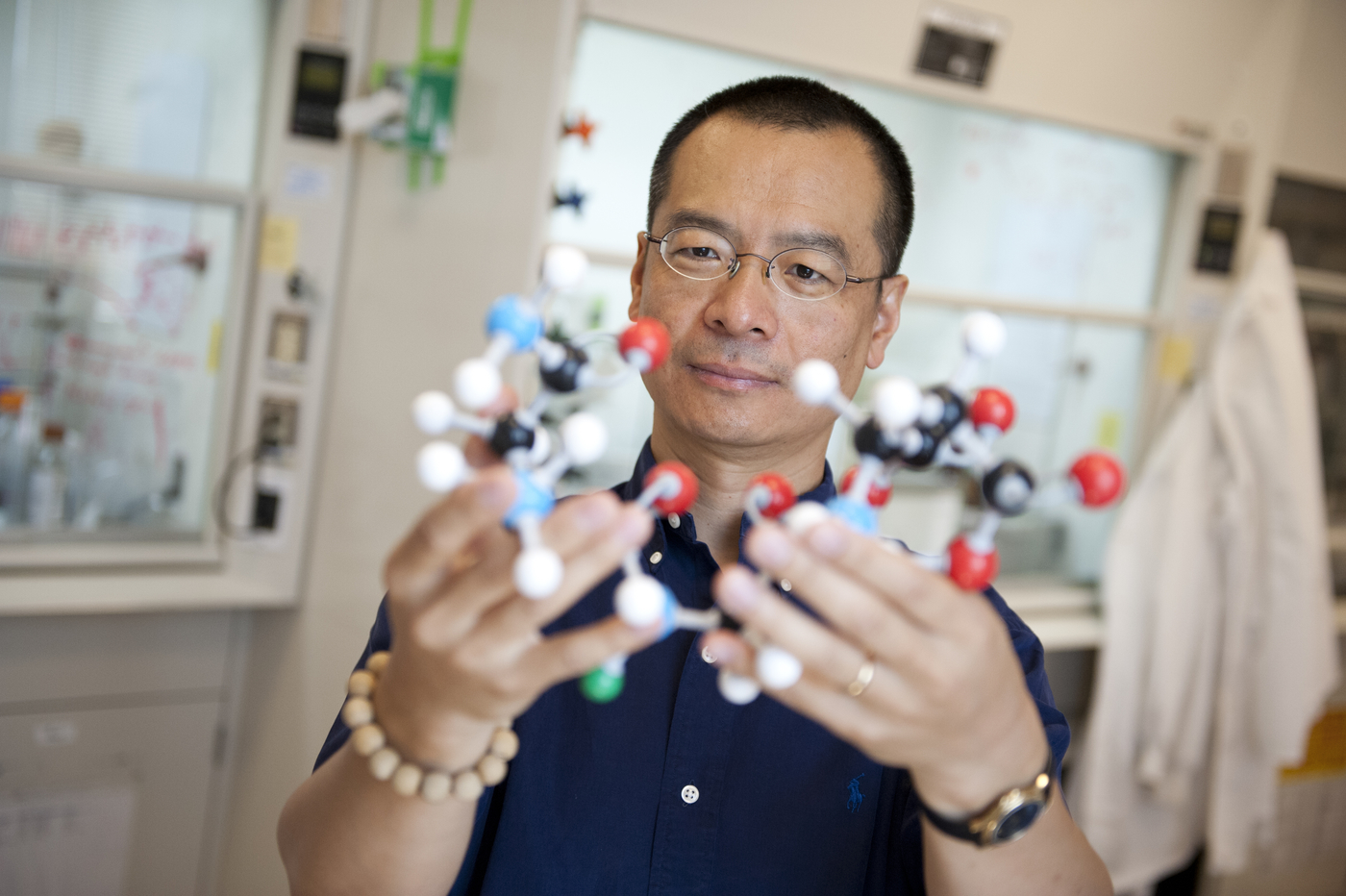Zhaohui “Sunny” Zhou, Professor in the Department of Chemistry and Chemical Biology, sits down with the College of Science Graduate Program staff to talk about his research at Northeastern University.
Tell us about your current research.
In my laboratory, aka SunnyLand, we study proteins: their chemistry, functions, and analyses. Particularly, we study protein modifications, and how those modifications affect protein function. Understanding protein modifications is extremely important because they play big roles in biology and disease. One of the first thing we have to do when we study protein modification is to understand what is happening to proteins under certain processes, so we develop methodologies to analyze modifications that have occurred. Along the way, we also discover some protein modifications that are new in terms of their chemistry. Some of what we have discovered, like cross-linking, for example, has not been reported before. For many years we have been studying methylation, which deals with cancer; and deamination, which deals with protein damage. One of the more recent programs in my lab that I am very excited about is something we call “hybrid modality engineering of proteins”. It is a process to introduce bio-orthogonal chemical moieties into canonical protein scaffolds to confer novel functions otherwise unavailable.
What drew you to your field?
I’m really interested in many aspects of scientific research, such as mechanistic studies, method development, and engineering. It’s hard for me to give up any of these, so proteins have provided me a way to pursue all these aspects of science. The study of proteins offers depth and breadth, while giving me ample opportunities for creativity. Another one of the things that drew me to studying proteins was its applications to healthcare; more and more drugs are made with proteins and peptides. For instance, in collaboration with AbbVie, we studied Humira, which is the world’s best-selling drug, so studying proteins has given me the opportunity to have a direct impact on healthcare.
What do you like most about being a faculty member at Northeastern?
What really drew me to Northeastern about ten years ago was the school’s innovative models of research and education. I think many schools talk about interdisciplinary research, but Northeastern really supports it and has many mechanisms to foster collaboration both on campus and in the greater Boston community. As an example, I have been working with the Dean of the College of Science to formalize a program called Industry PhD in which an employee of a company can remain an employee while obtaining a PhD degree from Northeastern.
What is your favorite part about Northeastern?
My favorite part is the students! Northeastern attracts wonderful students from a wide variety of backgrounds, and our university does a great job at integrating them within the campus and in the professional field. At the undergraduate level, we have the co-op program; and at the graduate level, we have the new Industry PhD program and the part-time Master’s Degree program, so we have students that are coming from the industry, and they have brought their expertise and experiences to the classroom. I have thoroughly enjoyed learning from them and their experiences.
What is your favorite part about Boston?
I really like Boston’s diversity. There’s a lot of people here from different backgrounds, which makes getting to know other people even more fun. It’s also a very metropolitan city with a vibrant culture while also being close to nature. A fox has had babies in my backyard twice in the last ten years!
What advice would you give to new and current COS graduate students?
As many fulfilling and rewarding endeavors there are in life, there are plenty of trying times in graduate school. I would suggest students to embrace the process and to accept that their challenges are a normal part of the process. I would also encourage them to build a supporting network within their immediate and outside circles. Moreover, many students find themselves bogged down daily tasks, data collection, learning new techniques, and I would suggest that they focus on the big picture. Graduate studies is really all about the student becoming a scientist, and I feel that the most important aspect is to learn to think critically and creatively.
Tell us a fun fact about yourself.
I learned lock picking and safe cracking from reading books by Richard Feynman, who is one of my idols in science and life.

